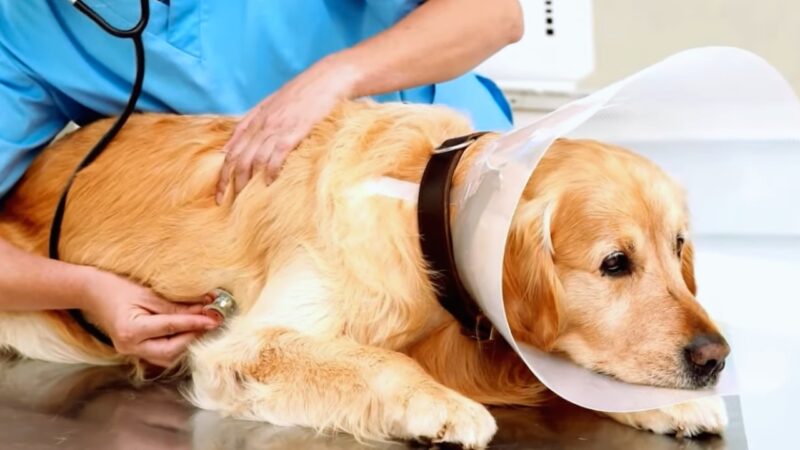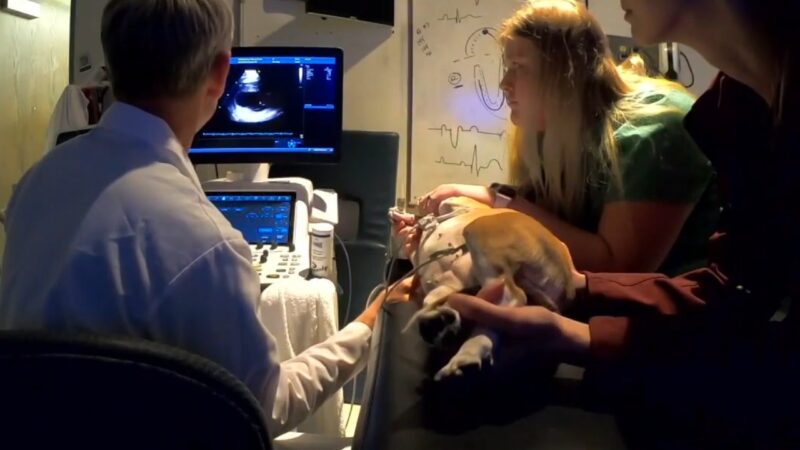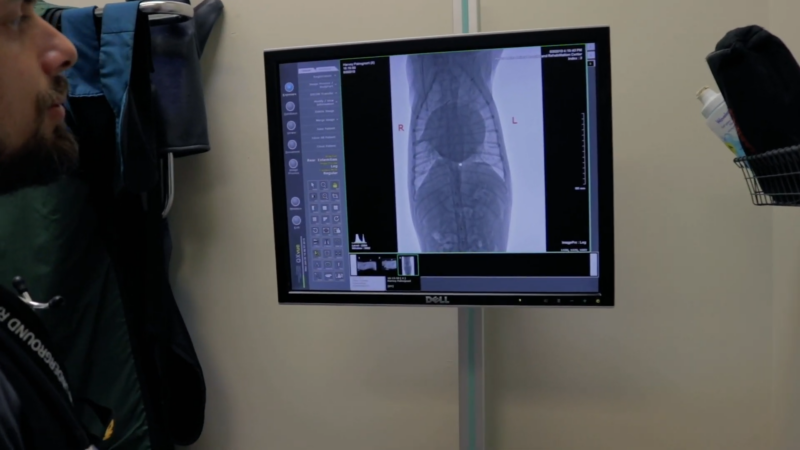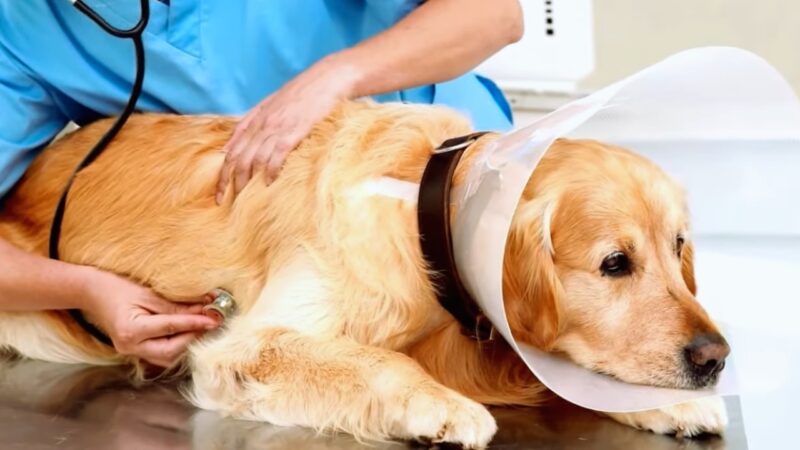
-
 Jane Harmon
Jane Harmon
- Published:
- Updated: November 18, 2024
- Category: Pet Health and Care
Share Post:
As a dog owner, I know how much we care about our furry friends. Our dogs are more than just pets; they are part of our families, our companions, and our source of joy.
So when something seems off with them, it’s easy to worry. One area where we need to be especially mindful is their heart health.
Heart disease in dogs can be a silent issue until it becomes serious. So, how can you spot early signs that your dog might have heart problems?
Let’s talk about some common indicators and what you can do to keep your dog’s heart ticking strong.
5 Common Signs of Heart Disease in Dogs

1. Persistent Cough
We’ve all heard our dogs cough before—it’s usually nothing to worry about. But when a cough lingers, it might be a sign that something deeper is going on.
A persistent cough could indicate fluid building up in your dog’s lungs, which is often linked to heart disease. In some cases, an enlarged heart can press against your dog’s airways, triggering a cough that doesn’t seem to go away.
2. Fainting or Collapse

Fainting in dogs can be a terrifying sight. It’s often caused by a lack of proper blood flow to the brain, which may happen when the heart isn’t pumping efficiently.
Sometimes, this can be triggered by exercise, or even a simple cough can lead to syncope—a brief fainting spell.
If your dog suddenly collapses or faints, it’s not something to brush off. You should make an appointment with your vet right away to figure out what’s going on.
It’s also helpful to be prepared for emergencies by getting certified in pet CPR and first aid through resources like MyCPR NOW, so you can act quickly in critical moments.
3. Difficulty Breathing
Another red flag is labored breathing. If your dog is breathing fast, with force, or seems to struggle while lying down, it could be a sign that their heart is not functioning well.
Dogs might try to compensate for this by standing or sitting with their legs wide apart and neck extended—almost like they’re trying to open up their chest to make breathing easier.
If this happens, it’s definitely a sign to get them checked out quickly.
4. Fatigue and Inability to Exercise

Every dog owner knows their dog’s usual energy levels. Maybe your dog loves a daily walk or playing fetch for hours.
If you suddenly notice that your dog gets tired more quickly, needs more breaks, or even seems disinterested in their usual activities, it might be more than just age catching up with them.
Fatigue can be a sign that your dog’s heart isn’t pumping efficiently, and they’re running out of energy faster than usual.
5. Behavior Changes
Dogs are creatures of habit. When they start behaving in ways that don’t fit their usual personality, it can be a clue that something’s wrong. With heart disease, dogs may lose their appetite, isolate themselves, or become reluctant to play or engage with you.
Sometimes, they may appear more anxious or uncomfortable, and their overall demeanor could change. It’s easy to chalk it up to aging or mood swings, but changes in behavior can often be linked to health problems.
When to Visit the Vet

So, when should you schedule that vet visit? Any time your dog shows persistent symptoms like coughing, fainting, difficulty breathing, or behavior changes, it’s a good idea to reach out.
Even if it turns out to be nothing, it’s better to be safe than sorry when it comes to your dog’s heart health.
Regular vet checkups are key, especially as your dog gets older. Routine visits allow your vet to spot early signs of heart disease, sometimes before noticeable symptoms even appear.
Questions to ask your vet:
- Are there any diagnostic tests for heart disease in dogs?
- What treatment options are available if heart disease is diagnosed?
- How can I support my dog at home, in addition to medical treatment?
- Are there lifestyle changes or diet adjustments that could help?
What to Expect from Treatment
Treatment for heart disease can range from medication to manage symptoms, to dietary changes, or even surgical intervention in severe cases. The earlier the diagnosis, the better the chances of managing the disease and improving your dog’s quality of life.
Treatment Options
If your dog is diagnosed with heart disease, don’t panic. There are many treatment options that can improve your dog’s quality of life and manage the condition.
Diet Therapy
One of the simplest yet most effective treatments is adjusting your dog’s diet. Vets may recommend a low-sodium diet to help reduce fluid buildup. Special heart-friendly dog foods are also available.
These are designed to support heart health with balanced nutrients, and your vet can guide you on the best choices.
Modification of Activity
Your dog may still enjoy walks and playtime, but the intensity may need to be toned down. It’s all about finding that balance between keeping your dog active without putting too much strain on their heart.
Light, moderate exercise is generally encouraged, but always follow your vet’s recommendations on this.
Medications

In many cases, dogs with heart disease will need medications to help manage symptoms and improve heart function. This could include drugs to regulate heart rate, reduce fluid buildup, or improve blood flow.
Your vet will monitor your dog’s progress closely and adjust medication as needed. It might seem daunting at first, but many dogs respond well to treatment and can continue living happy, fulfilling lives.
A Healthy Heart, A Happy Dog
Caring for a dog with heart disease might feel overwhelming, but early detection and treatment make a world of difference. Pay attention to the signs, get regular vet checkups, and follow treatment plans if needed.
Your dog can still live a joyful, active life with proper care and management.
Every wag of their tail and every happy bark is worth the effort. After all, their happiness and health are what matter most to us, right?
So keep an eye on their well-being, and don’t hesitate to take action if something feels off. You know your dog best!
Related Posts:
- Why Is My Dog Panting and Has Diarrhea? - What You…
- Should You Include Kiwi in Your Dog’s Diet? Here’s Why
- Potcake Dog Rescues - 7 Signs a Potcake is Right for You
- What To Do If You Drop Your Hamster Accidentally? -…
- Top Travel Destinations for You and Your Pet
- Signs Your Pet Needs Immediate Veterinary Attention…











